My input data has attributes for which multiple values can refer to a single business-friendly verbalization (domain label). I am trying to figure out how to represent this in Rule Designer. I'm new to ODM and still learning the ropes -- currently using ODM 8.8.1 (distributed / Java).
Imagine mapping ZIP code prefixes to their state. For example, ZIP codes beginning with 967 and 968 are Hawaii. In a nutshell, I want to express the rule as "if the ZIP code prefix is Hawaii..." rather than comparisons to 967 and 968. In domain terms, 967 and 968 are the real underlying attribute values, and Hawaii is the verbalization label. But obviously BOM-to-XOM expects a single return, and it wouldn't be correct to arbitrarily choose 967 or 968.
My actual scenario is far more complex involving long strings of cryptic code-values that the users would never know or recognize, but the concept is identical. In some cases a label can map to 15 or 20 underlying values.
Is this possible with ODM domains? (I am pretty sure it could be done on the other side with a decision table but I'm really trying to solve it as a domain problem for now.)

